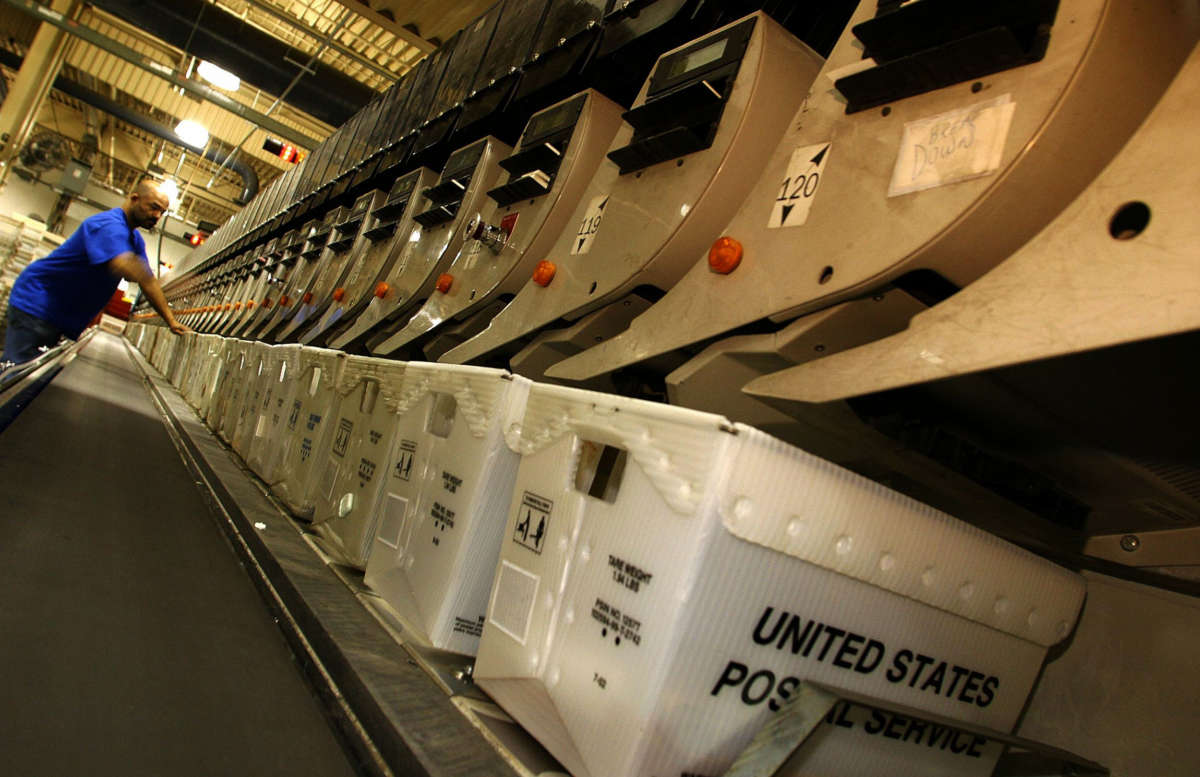Despite a promise from United States Postmaster General Louis DeJoy to suspend his controversial efforts to “reform” the United States Postal Service (USPS), workers and management at post offices across the country are being told they cannot reinstate mail sorting machines at their facilities.
An internal USPS email obtained by CNN told postal workers not to reassemble the machines without authorization from postal service leadership.
“Please message out to your respective Maintenance Managers tonight. They are not to reconnect/reinstall machines that have been previously disconnected without approval from HQ Maintenance, no matter what direction they are getting from their plant manager,” Kevin Couch, a director of maintenance operations at USPS, wrote in the email.
The message to post offices was sent the same day that DeJoy promised to suspend changes at facilities throughout the U.S.
Although the order specifically prohibited putting the machines back to work, at least one facility in Dallas, Texas, attempted to reinstate its mail sorter. However, it was unable to do so because a required part for the machine was missing.
DeJoy has defended his “reforms,” including the decommissioning of more than 600 sorting machines, as necessary to reduce costs for the USPS, but a number of these changes appeared to be directed at hindering mail-in voting for this year’s presidential election. Recent comments from President Donald Trump, after DeJoy received widespread criticism, heightened those suspicions.
The postmaster general halted his plans after 20 states’ attorneys general threatened a lawsuit against him. Citing his wish to “avoid even the appearance of any impact on election mail,” DeJoy promised to suspend his reforms until after the election. However, some post offices appear to have continued dismantling machines.
Even if his so-called reforms are halted for the time being, DeJoy is poised to make a number of other controversial changes to the USPS after the election, according to sources with knowledge of his future plans for the agency. These changes include curbing discounts to nonprofit organizations, creating higher pricing rates for residents of Alaska, Hawaii and Puerto Rico, and requiring first class stamps for election ballots. DeJoy would also charge higher rates on delivering packages from big retailers.
DeJoy is set to testify before Congress on Friday to discuss his controversial adjustments to USPS. In addition to discussing the removal of sorting machines, he will also answer questions related to other measures he implemented that resulted in slower mail delivery, including cutting hours for postal workers, reducing office hours and removing postal boxes in several cities.
Our most important fundraising appeal of the year
December is the most critical time of year for Truthout, because our nonprofit news is funded almost entirely by individual donations from readers like you. So before you navigate away, we ask that you take just a second to support Truthout with a tax-deductible donation.
This year is a little different. We are up against a far-reaching, wide-scale attack on press freedom coming from the Trump administration. 2025 was a year of frightening censorship, news industry corporate consolidation, and worsening financial conditions for progressive nonprofits across the board.
We can only resist Trump’s agenda by cultivating a strong base of support. The right-wing mediasphere is funded comfortably by billionaire owners and venture capitalist philanthropists. At Truthout, we have you.
We’ve set an ambitious target for our year-end campaign — a goal of $125,000 to keep up our fight against authoritarianism in 2026. Please take a meaningful action in this fight: make a one-time or monthly donation to Truthout before December 31. If you have the means, please dig deep.
